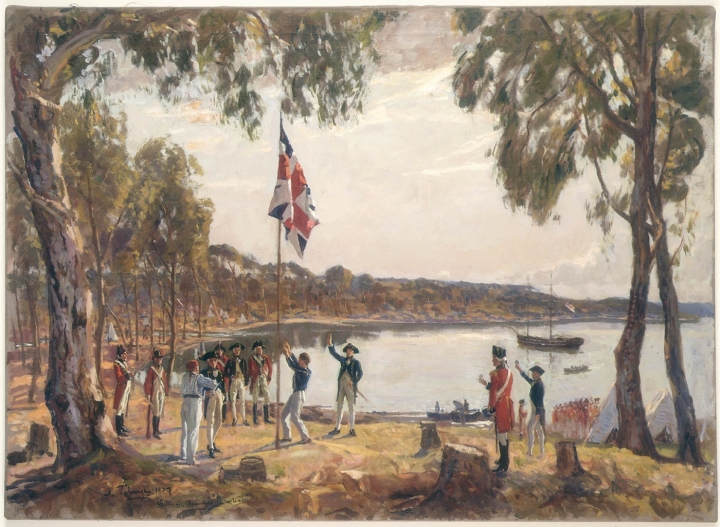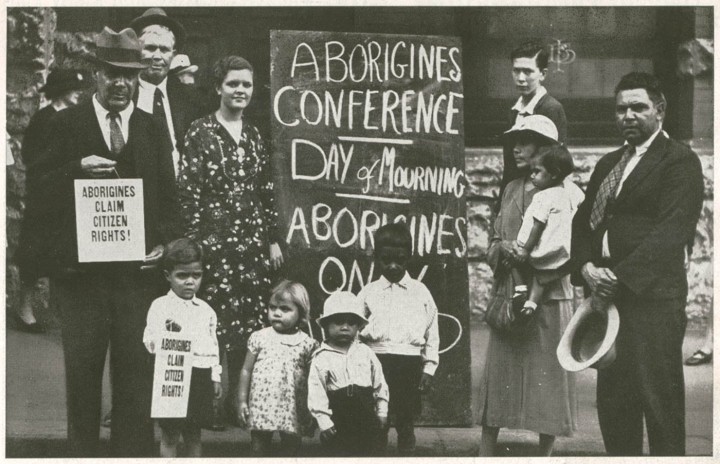
It is Australia Day so I had better say something. If you don’t already know, there has been much debate in the Australian community about whether Australia Day should continue to be held on January 26. On 26 January 1788, Captain Arthur Phillip sailed into Sydney Cove to establish a penal colony for the British Empire.

“Prior to European settlement, best estimates suggest that the Aboriginal
population was likely to have been between 300,000 and 1.5 million,
consisting of around 600 different tribes speaking more than 200 distinct
languages and located primarily along the food-rich coastal regions and main
river systems. The Aboriginal population declined dramatically following
European settlement, as a consequence of conflict, disease and a declining
birth rate. By Federation in 1901, the Aboriginal population was estimated to
have fallen to around 94,000.“
A key milestone in the establishment of Australia Day as our national day came in 1871. This marked the formation of the Australian Natives’ Association. The Australian Natives’ Association was formed as a friendly society to provide medical, sickness and funeral benefits to the native-born [ie. Australian-born] of European descent. The Association became a keen advocate of a national holiday on 26 January. In other words, it was the descendants of the invaders (for wont of a better word, or maybe it is the best word) who advocated for a national holiday to mark British colonisation and their place in the sun.
Australians are proud of our British ancestry (or so I’m told). It wasn’t until 1984 that Australians ceased to be British subjects (unless entitled to dual citizenship), and it was a full 10 years after that a national public holiday was instituted on 26 January to mark our special day. Prior to that, the Australia Day holiday was held on a Monday around that date, so that we could all enjoy a long weekend; Australians love their long weekends. Nevertheless, many Australians made the best of the change and also took their annual holiday on the days on either side of the 26th, so that we could have an extra-long long weekend. For the full timeline of the history of Australia Day see here.

As with many things, events and celebrations do evolve with the times. Now I’m told (mostly by our politicians) that Australia Day is not just a chance to enjoy a public holiday, catch a rock concert and attend the fireworks, but is also an opportunity for all Australians to celebrate and honour, well, ourselves, and our Australian values; values like freedom, a fair go, mateship and diversity. This is despite many First Australians seeing 26 January as a national day of mourning, rather than a day of inclusion. See also Uluru Statement From The Heart.

Many Australians, not just First Australians, are uncomfortable about recognising January 26 as Australia’s national day. There is growing support across the Australian community to either abolish Australia Day, or at least, change the date.
I must confess I still have reservations about the date. Notwithstanding that the date disenfranchises our First Australians, it seems perverse to celebrate our national day on the anniversary of becoming a penal colony. Most other countries celebrate their national day on the anniversary of when they became free of their colonisers (see here). We do things a little differently here.
I do not feel proud of my British heritage (it just is). I do feel horrified that my ancestors murdered indigenous Australians (my ancestors actually did). I feel saddened that my right to freedom of speech – to criticise the date of our national day – is lambasted as being divisive or as political correctness gone mad
Or maybe I’m just miserable. In 2018, our (then) deputy Prime Minister, the Hon. Barnaby Joyce, had this to say last year about those who opposed Australia Day being held on January 26.
“Today is a day about celebration,” said Mr Joyce. “I’m just sick of these people who every time they want to make us feel guilty about it. They don’t like Christmas, they don’t like Australia Day, they’re just miserable … and I wish they’d crawl under a rock and hide for a little bit … This is a great country. Aren’t we lucky? If this isn’t worth celebrating, what is?” The Deputy Prime Minister’s comments on Radio 2GB as quoted in The Australian
Yes, that’s probably it. But somehow or other, I don’t feel miserable. I feel Australian (whether lucky or not). It is home. Changing the date is not a denial of our history. It’s an acknowledgement of the harm caused. That’s all – just an acknowledgement.
Comments welcome. Can’t find the Comments Section? Keep scrolling past the Social Media Icons and Post Tags. You’ll find it there.
I’m a historian kind of person and after all I’ve learned, stuff we’re not taught in school, I think we need to cut the people of the past a lot of slack, forgive them and recognize that who we are now — maybe more enlightened — is because of who they were then, choices people made in the intervening period and the fact that humans do learn. Happy Australia Day! One of my good friends here in the back-of-beyond Colorado is Australian an we’re celebrating at her house tomorrow. 🙂
LikeLiked by 1 person
I agree, Martha. My concern is just to change the date so that we can all celebrate. Perhaps when we finally become a republic, we could make that date Australia Day. Say g’day to your friend for me. 🙂
LikeLiked by 1 person
I will! 🇳🇿
LikeLiked by 1 person
I am not Australian so I am interested to see how Australian people view to Australia Day. I understand that more Australian are in question as to whether current date is appropriate to celebrate themselves as nation. I have number of reasons why I like Australia and one of them is diversity. So I see it great movement that Australian debate and be more expressive about this subject (i.e. demo, share in writing etc). I will look forward how this subject is going to be driven by Australian people. And thank you very much for sharing your thought with us! 🙂
LikeLike
Thank you for your very thoughtful comment, Makiko. i agree we are very lucky to have such a diverse country. Thank you for allowing me to use your photo of fireworks in Sydney.
LikeLiked by 1 person
you are most welcome Tracy. 🙂
LikeLike
Your writing resonates with me. I don’t do anything to celebrate Australia Day and I dislike the flag-waving self-congratulatory day it has become. I feel we should show respect and generosity to the Aboriginal people, and change the date, and I believe people will learn to celebrate on different day in much the same way as they do now.
LikeLiked by 1 person
Thanks Jane. I agree. This is not to say that my intention is to disparage those people who celebrate Australia Day. Social media can be a force for change because it provides increased opportunities to find out about some of the stories of dispossession, which may lead to a more support for changing the date. These are stories that weren’t taught to us in school. I think a change of date will only be made if the majority of Australians get behind it. I’m hopeful.
LikeLiked by 1 person
I came to this beautiful country as a migrant. Until I read Stan Grant’s ‘Talking to my Country’, I found myself saying the history is young.
The written word is powerful. So is the spoken word. The visual communication. We can bring about change. It starts from within, first. It did in me. As you say, it starts with acknowledgement.
Thank you for writing about a complex matter in such an accessible way.
LikeLiked by 1 person
I think I’ve just had an epiphany. I must read Stan Grant’s book. I have an unconscious bias too. If we truly believe that we are all Australians – if we don’t think of ourselves as indigenous and non-indigenous Australians – then it is easy to see that the ancient history of Australia belongs to all of us. Let our Australia Day date reflect that. 🙂
LikeLiked by 1 person
He has a powerful voice. I admit to squirming from the discomfort of ignorance but it awakened something in me. As you say, acknowledgement. Such a beautiful, healing word.
LikeLiked by 1 person
An interesting post Tracy and it will give other bloggers from around the world an insight to out Australia Day. It is a contentious issue and the feeling of unity and Australianess should extend to the indigenous people and the only way that will happen is to change the date. But what that date should be will be debated for a long time before it actually happens.
LikeLiked by 1 person
Thanks Pauline. It certainly is a difficult one.
LikeLiked by 1 person
So many countries have their “day” based on freedom, but what is often neglected is that the freedom came at a price of bloodshed and slaughter. It was interesting to read your, and your Prime Minister’s thoughts. Thanks for the history lesson .
LikeLiked by 1 person
I hadn’t thought of that! I do hope that no more blood is shed because so much has already been shed over the last two centuries.
LikeLiked by 1 person